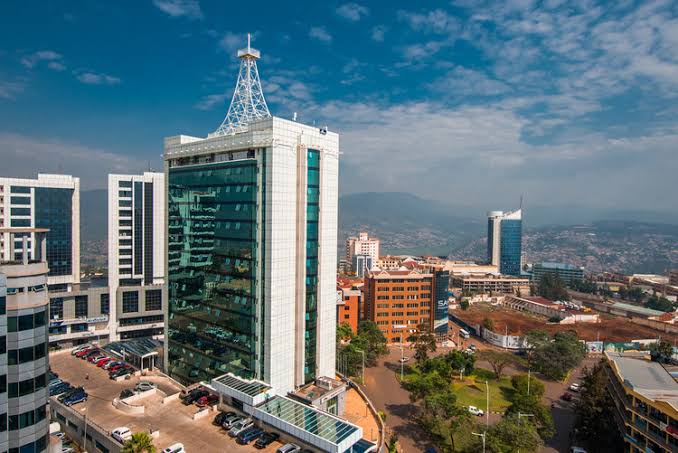Rwanda snaps $100M from AIDB for its Digital Acceleration Project

The Rwandan government, through its Ministry of Finance and Economic Planning, has reportedly borrowed $100 Million from the Asian Infrastructure Development Bank (AIDB) to fund its Digital Acceleration Project.
The Digital Acceleration Project is also co-financed by the World Bank to help increase the country’s broadband access and digitalization of its public services.
The project proposes to support Rwanda’s short and long-term recovery from the effects of the COVID-19 pandemic and also better equip the country against any possible future pandemic.
The Minister for Finance and Economic Planning, Uzziel Ndagijimana, said: “The project will complement the Government of Rwanda’s efforts in recovery and resilience to post covid-19 pandemic and in implementing the National Strategy for Transformation, with a focus on the priority to establish Rwanda as a globally competitive knowledge-based economy”
“We believe that these are first steps towards a long term development relationship between Rwanda and the Bank,” The AIIB’s Director-General of the Banking Department said, adding that “this marks the first digital acceleration investment the bank is making in sub-Saharan Africa, it is also the second project we are funding in the region and both happen to be in Rwanda.”
Although Rwanda has made considerable progress in its provision of broadband access in the past decade, the country still lags in digital adoption, especially for its rural communities as internet penetration is at 45.1%.
The continent’s average Internet penetration stands at 43%, according to the latest estimates. Kenya currently has the deepest internet penetration rate across Africa at 85.2% and Libya follows closely at 84.2% and Nigeria at 73%.
Rwanda has also expanded the use of Management Information Systems (MIS) and many other innovations to digitalize public record keeping. MIS studies people, organizations, technology, and the relationships among them. It gathers, stores, and represents data in a comprehensive format.
The project will finance interventions steered towards addressing the barriers to digital adoption, as also leveraging digital platforms and data-driven solutions that will improve the efficiency, security, usability, and attractiveness of digitally-enabled public services.
The project proposes to increase digital inclusion, improve the efficiency of public service delivery and strengthen the country’s digital innovation and entrepreneurship ecosystem.
The digital inclusion project is expected to; increase access to affordable mobile devices; bridge the gap in digital literacy; expand connectivity and access, particularly in rural communities; and enable an environment for broadband market development.
A digital-enabled government will strengthen Rwanda’s capacity for digital service delivery and position the country for private sector innovation. The enabled system will ensure support for digital identification and authentication systems and services that secure digital transactions; the government would also be able to build a better data ecosystem and; and apply data-driven solutions to core areas enabling e-service offerings and support related designs.
The project would improve the success and growth rate of digitally-enabled startups in the country and place Rwanda on the international map as a hub for innovation and entrepreneurship.